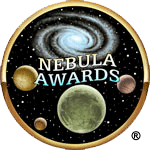MAGGIE GEE CONFERENCE
University of St Andrews and University of Lincoln
(Venue: University of St Andrews, 30-31 August, 2012)
Contact email: gee@gylphi.co.uk
This two-day international conference aims to bring together scholars for the first academic conference dedicated to Maggie Gee’s writing. Gee is one of Britain’s most prolific and critically-acclaimed novelists: the author of 12 novels, as well as collections of short stories, edited anthologies of contemporary writing and, most recently, an autobiography My Animal Life (Telegram Books, 2010).
Since she was selected for Granta’s first list of Best of Young British Novelists in 1983 (in company with Salman Rushdie, Kazuo Ishiguro, Martin Amis, Pat Barker, Julian Barnes, Ian McEwan and Rose Tremain), Gee has worked in publishing, academic research (gaining a PhD in the twentieth-century novel from Wolverhampton Polytechnic in 1980) and was the first female Chair of the Royal Society of Literature. She is currently working as one of the Society’s Vice Presidents, as well as acting as Visiting Professor of Writing at Sheffield Hallam University. In addition to her publishing and academic responsibilities, Gee is also highly critically acclaimed: her eighth novel, The White Family (2002), was shortlisted in 2002 for the Orange ! Prize for Fiction as well as the International IMPAC Dublin Literary Award in 2004.
Ceaselessly inventive and astonishing, Gee’s writing is distinguished by ambitious scope and aesthetic innovation, tackling political themes and writing across a broad range of subjects and genres. Intertwining intimate domestic dramas with grand-scale, seismic shifts in cosmic balance, several of Gee’s novels imagine global disaster, apocalyptic futures and environmental catastrophes. Meanwhile, Gee is also concerned with exploring issues of racism, prejudice, cultural difference and class inequalities. Her body of work confronts political attitudes in contemporary Britain through satire, comedy, family saga, thriller and romance.
The organisers welcome papers on any topic related to Maggie Gee’s writing. Topics might include, but are not limited to, Maggie Gee’s writing and:
- genre, science fiction, thriller, autobiographical fiction, romance, family saga, political satire
- war, terrorism, violence and political activism
- (post-)apocalypse and ecocatastrophe
- inter-generational conflict, familial relationships
- utopian and dystopian thinking
- the urban and the rural
- racism, migration and multicultural Britain
- the role, and representation, of women
- the environment and new ecocritical directions
- class, social mobility, poverty and social inequality
- modernism and its inheritances
- death, suicide and posthumous narrative voices
- the representation of time and imagining the future
- nuclear weaponry
- society, nature and the cosmos
- cosmopolitanism, Africa, Japan
- contemporary women’s writing and publishing
- translation, the British publishing industry
The conference welcomes papers from any discipline, a variety of theoretical perspectives, and those which engage with media beyond that of the written text. Submissions are welcome from both research students and academics. Please send a title and 300 word abstract for a 20 minute paper along with your name, affiliation and 100 word professional biography to gee@glyphi.co.uk by 29th February 2012.
Conference website: http://www.gylphi.co.uk/criticalessays/index.php
Conference blog: http://maggiegeeconference.blogspot.com/2011_12_01_archive.html
Conference Facebook group: http://www.facebook.com/#!/events/154402491290124/
The conference is organised by Dr Sarah Dillon, Lecturer in Contemporary Fiction, School of English, University of St Andrews and Dr Caroline Edwards, Lecturer in English, Department of English, University of Lincoln. For more information on the research and professional activities of Dr Dillon and Dr Edwards, see their homepages:
For more information regarding the St Andrews School of English and its activities, as well as the Department of English at the University of Surrey, see the homepages:
The conference is sponsored by Gylphi Arts and Humanities Publisher. Selected papers from the conference proceedings will be published asMaggie Gee: Critical Essays, with a foreword by Gee, as part of Gylphi’s Contemporary Writers: Critical Essays series (Series Editor: Dr Sarah Dillon). For more information regarding the Series see: http://www.gylphi.co.uk/criticalessays/index.php
